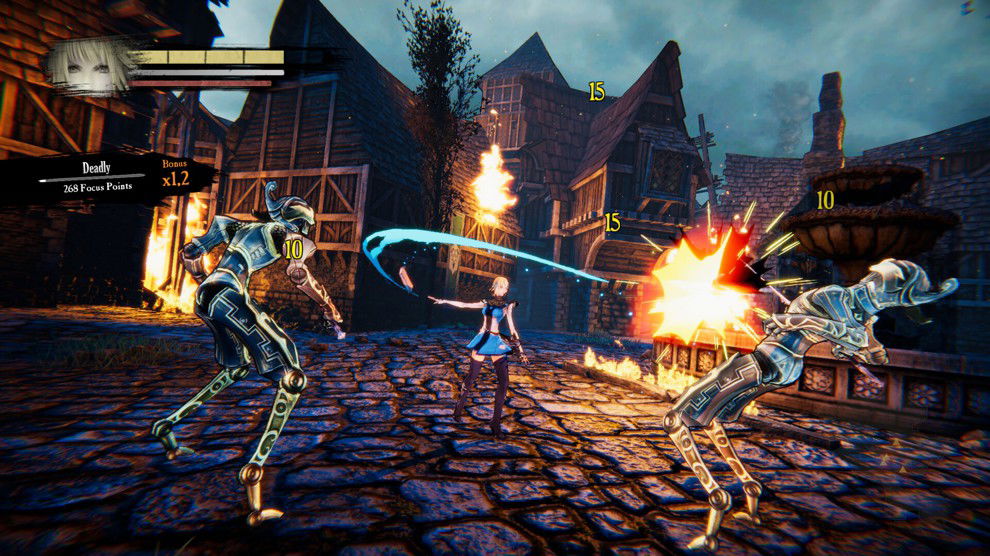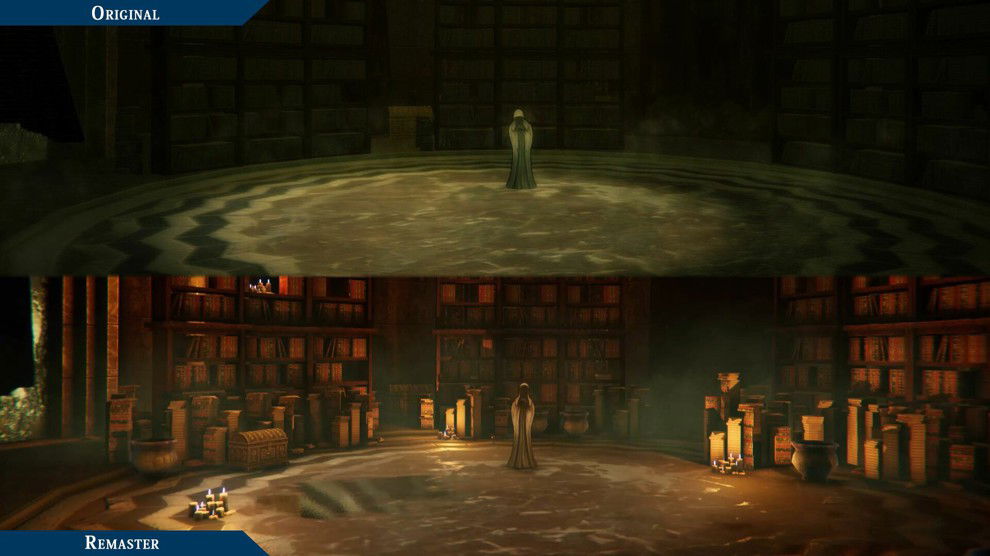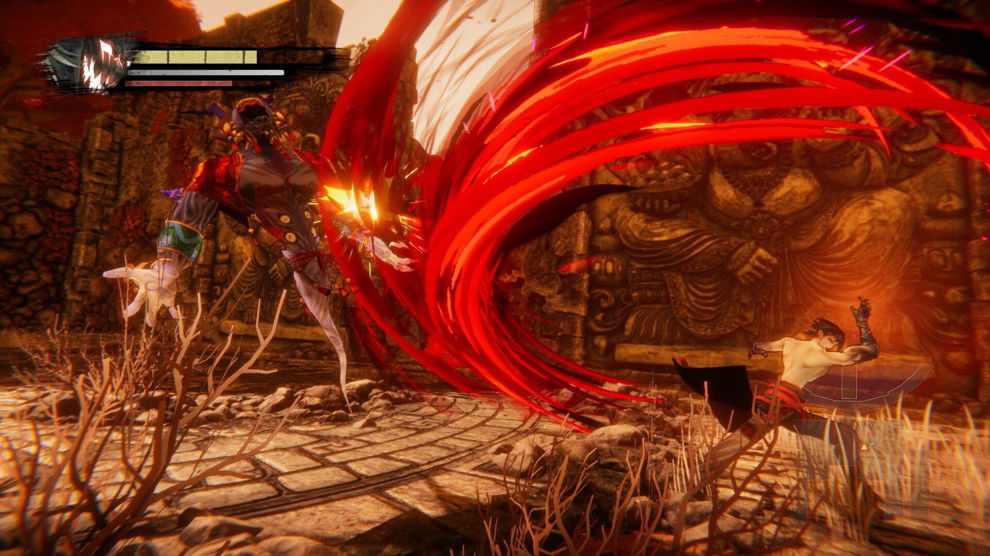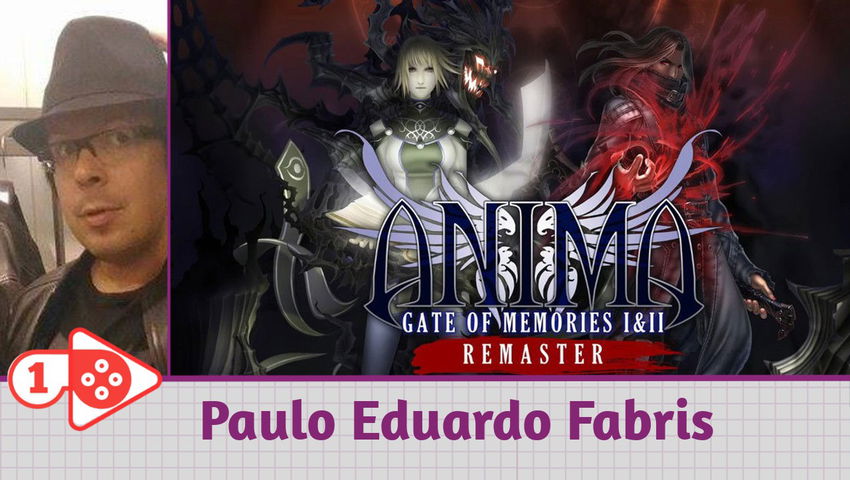Revisiting Anima: Gate of Memories (official website) in its remastered version is like coming home after a long time away: familiar, yet slightly different. The work involved carefully redesigning the borders, improving gameplay and camera, and enhancing the voice acting.
This new release doesn't attempt to reinvent what the series was—it simply adjusts the focus, dusts it off, and delivers a clearer vision of a world that still retains much of its original charm. It's a restoration, not a revolution.

The game remains the same, with its mysterious aura and melancholic tone, only free from the technical imperfections that aged it poorly. From the first minutes, the difference is noticeable. The textures have gained clarity, the colors are more balanced, and the overall performance remains stable, even in the most open areas. Still, the feeling is that the game doesn't try to hide its age. It displays its scars naturally, and there's something beautiful about that.
The remaster doesn't disguise its origins—on the contrary, it seems proud of them. Instead of masking limitations, the new finish only illuminates better what was already there: an original project, full of bold ideas and its own personality.
Preserve, not Remake
The update is subtle, almost handcrafted. Small adjustments to the controls and camera make exploration more fluid, but the rhythm, structure, and tone remain true to the original spirit. Anima has never been a game for everyone. It has always sought to balance action, mysticism, and philosophy, with a type of narrative that refuses to simplify. The remaster maintains this same DNA. It offers a more stable experience, but without sacrificing the strangeness that makes it unique.
The revamped visuals don't transform the game into something modern—they just make it more cohesive. There's a new sharpness in the shadows and a softness in the lighting effects that help highlight the dark atmosphere. In essence, what you gain is a cleaner version, but not necessarily a more current one. The result is a game that seems to exist between two eras: modern enough to be playable, old enough to maintain its character.
Firmer combat, more conscious rhythm
If there's one area where the remaster truly shines, it's in combat. The addition of charged attacks and unblockable strikes changes the dynamics of battles. They introduce a new layer of strategy and force the player to think about rhythm, distance, and reaction time. The movement of the Bearer of Calamities and Ergo Mundus, her companion, is more fluid and precise, allowing for more natural transitions between the two.

The battles now feel more controlled, more fair. There are still moments where the game repeats patterns, but the overall feeling is one of evolution. The impact of the blows, the enemy's response, and the weight of the animations have been adjusted enough to make the system satisfying. It doesn't try to reinvent the genre, but it achieves something the original version never fully managed: consistency.
A narrative that insists on being felt
The story of Anima remains one of its most enigmatic aspects. Complex, fragmented, and full of symbolism, it doesn't attempt to hold the player's hand. The plot still delves deep into themes like regret, identity, and destiny. The language remains poetic and dense, which may alienate those seeking a straightforward narrative, but it’s precisely this complexity that gives soul to the experience.
Exploring the areas, with their labyrinthine connections, reinforces the feeling of isolation and inner searching. It's easy to get lost—both in the paths and in the ideas—but this is the kind of game that prefers the player to get lost, to discover meaning in uncertainty. The remaster maintains this contemplative pace, without rushing what should never be rushed.
The beauty of imperfections
Anima: Gate of Memories I & II Remaster remains a work of contrasts. With each technical success, there's a reminder that this is a game born from a small studio, with limited resources but enormous ambitions. This duality—between flaws and passion—is what gives the game its personality. The visual update softens the defects, but doesn't erase them. And perhaps that's the best possible compliment: the remaster doesn't try to hide what Anima really is.
The small animation hiccups, the pauses in dialogue, and the dated menu design don't compromise the experience. They only remind us that we’re facing something made with more will than means. And this honesty ends up becoming a virtue. It's rare to see a game that still carries its identity with such clarity, even after so many years.
The Nameless Chronicles — The same mirror, another perspective
The second part of the collection, The Nameless Chronicles, follows the same path as the first game. It benefits from graphical improvements and overall stability, but maintains the structure and melancholic tone. The story of the nameless protagonist delves into themes of guilt and redemption, functioning almost as a dark counterpoint to the Bearer's journey.

The combat is a bit faster, the pacing more cohesive, and the atmosphere denser. Even with recycled enemies and areas, there's a greater sense of purpose. The technical changes help maintain fluidity, and the new soundtrack reinforces the intensity of the battles. In the end, the two parts complement each other: one reflects the other, forming a more complete whole than they seemed separately.
Voices that are dissonant, but not destructive
The weakest point remains the voice acting. The protagonist's performance, in particular, lacks emotion and depth. In several scenes, the tone of the voices doesn't match the weight of the words, breaking immersion at key moments. It feels like the character is speaking from inside a bubble, disconnected from what's happening around her.
On the other hand, the overall sound design is much more balanced. The soundtracks have been reworked, the effects have more impact, and the soundscape effectively sustains the atmosphere of mystery. Even with the acting flaws, the sound fulfills its role of reinforcing the drama and tension of the world of Anima. It's a curious contrast: the technical audio has matured, while the voice acting continues to sound like an echo of the past.
A remaster that embraces its origins
What makes this relaunch interesting is precisely its lack of pretension. It doesn't try to compete with modern productions or big-budget titles. Its goal is more humble—and, paradoxically, more authentic. It exists to preserve, to do justice to what Anima once was and what it can still be for those who have never experienced it.

Instead of modernizing at all costs, the remaster prefers to respect the soul of the game. And this translates into something rare: a version that finally feels complete, without betraying what inspired it. The problems are there, visible, but tamed. The result is an experience that blends nostalgia and rediscovery.
Conclusion
Anima: Gate of Memories I & II Remaster doesn't try to be a fresh start, but rather a second chance. It's the same game as before, but now with the maturity of someone who has learned from their own mistakes. The combat improvements and visual refinement are enough to make the journey more enjoyable, while the narrative and art style maintain that touch of strangeness that has always defined the series.
Those who played the originals will recognize the care with which everything was reworked; newcomers will find an action RPG with a peculiar charm, full of its own ideas and flaws that end up becoming part of its allure. Anima never wanted to be perfect—only true. And that's exactly what this remaster delivers: an imperfect but authentic work, made with soul and memory.











— 코멘트 0
, 반응 1
첫 댓글을 남겨보세요